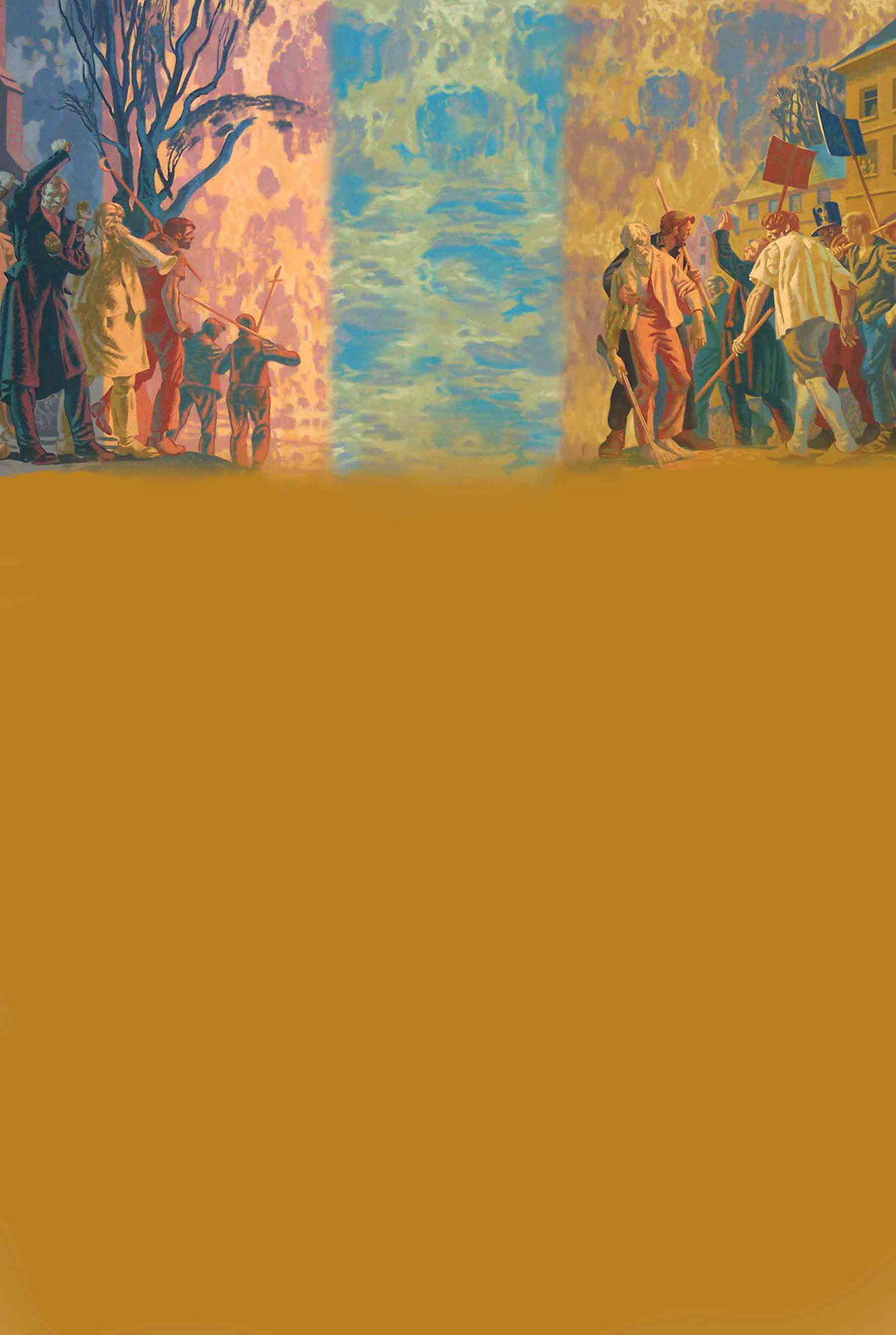


Stroud Chartism: Chas Townley (Stroud) draws our attention to a film project that is taking off in his home town. It concerns the Chartist demonstration called for Whit Monday on May 21st 1839 at Selsley Common. The cause of unrest amongst the textile workers of Stroud and the region was an enduring trade recession. The target of their wrath was Lord John Russell, local MP and Home Secretary. Earlier that year he removed John Frost from the magistrates bench at Newport for his Chartist activities.
Frost turned up on Good Friday at Stroud, 29 March when Chas tells me “apparently 10,000 attendees adopted John Frost as their candidate for the next general election.” Frost’s supporters had mustered the Chartists of Gloucestershire at Rodborough Common. Of course, that election contest, which the existing electoral system made impossible for Frost to win, never happened. Frost was exiled to Van Diemens Land (Tasmania) and placed at the mercy of the Colonial Office and its representatives in Hobart.
When Frost sailed in late February aboard the Mandarin, Lord John Russell had since the previous September, held the post of Colonial Secretary in Lord Melbourne’s cabinet.
And for details of Film making:
New look Chartist eMagazine
The new email/website linked format of CHARTISM Mag has been well received by readers. Please let us know how you think we can improve what we do. We depend upon you feeding us with your knowledge, news and opinions about matters relevant to Chartist History. We are now very much at the heart of a Community of Chartist websites and bloggers. This means we can easily link you in with what is happening around the country. So here are a few suggestions as starters:
1.Chartist Ancestors website begun by Mark Crail in 2003, and recently revamped, is a mine of information. The names of around 5,000 subscribers to the CHARTIST LAND company from LANCASHIRE, transcribed in the 1990s by Professor Jamie Bronstein of New Mexico State University, can be found on this website. And now (thanks to Katrina Navickas) 644 MANCHESTER names are also available. Visit the site
2. Chartism and the Chartists is a very accessible website edited by the Chartist historian, Stephen Roberts’ contains fascinating musings, information, illustrations and news, reviews, a regular blog and a very useful list of ESSENTIAL READING. Visit the site
3. Richard Brown, retired teacher, has long championed Chartism in the classroom and is one of the most read Chartist history bloggers. Looking at History is a rich blog archive, (Visit the site) notably the 2007 section - ‘Aspects of Chartism’ and ‘Chartist Lives’, but a little awkward to navigate but well worth the effort. Brown blogs on a wide range of history and political issues. His book output is phenomenal and includes nineteenth century Canadian and Australian history, as well as Chartism. For me "Before Chartism: Exclusion and Resistance" (2013) enters territory that needs investigating. There appears to have been a dwindling interest in the origins of the ideas and aspirations that drove the Charter bandwagon onwards, but this book was an excellent reminder of Chartism’s deep roots in the British past and tells some of the stories of the campaigns that fed Chartism. Sadly, Brown’s most ambitious work "Three Rebellions Canada 1837-1836, South Wales 1839 and Australia 1854" (2010) is currently out of print but is occasionally available on used and antique book sites such as Abebooks.co.uk and Amazon.
4. London Chartist Walking Tour 25 Sept 2015 Don’t miss Dr. Katrina Navickas’ blogspot (Visit the site) Find out about this exciting event, part of a project using the digitised Northern Star newspaper to establish Chartist meeting places, public houses etc – echoes of the Cynefin Project at Gwent Archives?
Back to Index for Issue 9 of the Magazine




edited by Les James




